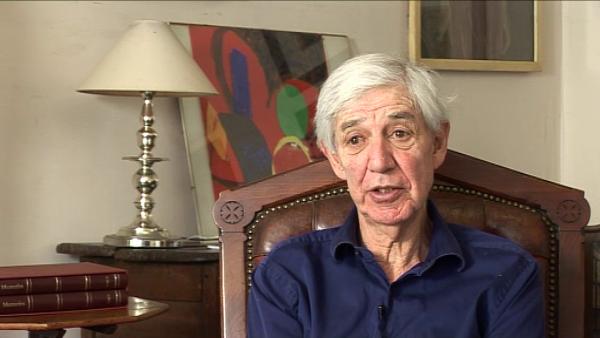So I want to argue very strongly that the human embryo is not a human being until it’s outside the woman, and can survive outside the mother with a minimum of external… a minimum of external support. And what’s nice about stem cells now, and it’s a remarkable achievement, it’s now possible to make… almost the equivalent of embryonic stem cells by taking one of your skin cells, putting in a certain number of genes, and they almost behave like embryonic stem cells. So those ethical issues thing. And then there was an enormous fuss about cloning… cloning a human being. That is, taking one of my cells, taking the nucleus with its genes, and putting it into a… an egg from which the nucleus has been removed. And of course that would be an identical twin to me when it develops, and people — there was — people have been hysterical about the ethical issues that this ranges. I have to tell you that I have offered on television, radio and the press, a bottle of champagne to anybody who can show me — or tell me — one new ethical issue that this raises. There’s a further complication. If you come and ask for your bottle of champagne and I show you that you’re wrong and it’s not new, you have to give me two. Nobody has ever come forward to ask for their bottle of champagne. In other words, it really is… bioethics is really… it really is a gross load of nonsense. Safety, of course, and if you’re doing… if you’re doing experiments on animals, you must try not to be… that they don’t suffer too much pain. If you’re doing experiments on people, you have to tell them what you’re actually doing, but I think the bioethic issues related to the… early human embryo, and to cloning, simply have no foundation whatsoever.






